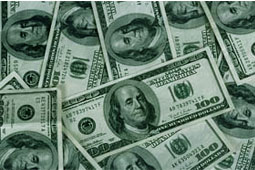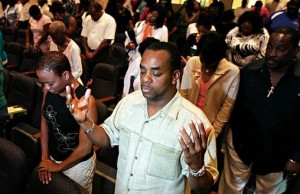The Legacy Series contains the most read articles in the history of this website. This is the #2 most read article in the history of Black Men In America.com.
![]()
By Gary A. Johnson – Black Men In America.com
Updated December 28, 2022 (Originally posted on November 5, 2010).
How black people spend their money has been a hotly debated topic in offices, at social events, and in beauty and barber shops across America. This article, “How Do Black People Spend Their Money?,” has been the most read and commented article for 12 years running. Once I learned that this was the most popular and discussed article on the website, I decided to do some research and share this information with others. Over the years I found the process of gathering data and updating the site to be exhausting. It’s a lot to read. I update the site 1-2 times per year. This year I decided to update the article via video in the form of a pictorial slideshow. This way the reader has options. You can watch a 9-minute video which is the equivalent of having a summary video or a “Cliff Notes” version of how Black people spend their money, which includes a new component. I developed, “Gary’s 10 Tips To Prosperity and Emotional Fulfillment,” as part of the 2022 update. Or, you can read and review the exhaustive data and charts/graphs.
Here’s something to think about. Blogger Matthew Corbin lists 5 Reasons Why Black People Are Still Broke.

Here are Corbin’s 5 reasons:
- Black people spend more money than they make
- Black people don’t support black businesses
- Black people don’t save their money
- Black people don’t know how to invest
- Black people aren’t working towards getting out of poverty
Click here to read Corbin’s explanation for each reason.
![]()
There is an article on Mater Meta.com, by Kimberly Anderson-Mutch, about how to build generational wealth. Kimberly outlines the following 5 things that Black families can do to build generational wealth.
- Talk to your children about wealth.
- Buy a home or invest in real estate to create generational wealth.
- Start a business.
- Invest in stocks.
- Establish an estate plan.
![]()
A recently released study by Merrill Lynch explored the ways wealthy Black people in the US spend their money.
What they found is that many well-to-do Black Americans:
- Take care of their family members, invest in their friends’ businesses, and eliminate debt
- Spend their earnings preparing for the future and retirement
The study, entitled “Diverse Viewpoints: Exploring Wealth in the Black/African American Community,” surveyed 455 affluent Black people –– defined as a household with annual income of $125,000 or more. The study’s findings indicate that this group of the US population is actually growing in size and has been since 2015.
The study participants reported working harder than other people in the affluent income category and charter their own career pathways. Affluent Black in the US are five times more likely to financially support their parents than other affluent people and four times more likely to plan to start their own business.
Another great source of information is “How Black/African Americans Pursue—and Define—Success,“ by Diallo Hall, a longtime content strategist and editor whose experience includes serving as Director of Thought Leadership at Fortune and Senior Editor at the Economist Intelligence Unit. In that article you will read about the “Black Rules for Success,” from other successful Black/African American survey respondents.
![]()
Part 1: The Narrative
Warning: The following is a link to a long article with a lot of details, numbers, observations and opinions covering over two decades of information and data. A large portion of the data was gathered before COVID-19.
Click Here To Read The Entire Updated “How Do Black People Spend Their Money?”
![]() How black people spend their money has been a hotly debated topic not only on this site, but in our office, at social events and in beauty and barber shops across America. This article has been the most read and commented article for 12 years running. Once I learned that this was the most popular and discussed article on the website, I decided to do some research and share this information with others.
How black people spend their money has been a hotly debated topic not only on this site, but in our office, at social events and in beauty and barber shops across America. This article has been the most read and commented article for 12 years running. Once I learned that this was the most popular and discussed article on the website, I decided to do some research and share this information with others.
Click Here To Read The Entire Updated “How Do Black People Spend Their Money?”
Let’s start by watching this short video that explains the “racial wealth gap” in America.
Check out this 1954 film made to educate white merchants on the spending habits of Black Americans.
The Secret of Selling the Negro Market is a 1954 film financed by Johnson Publishing Company, the publisher of Ebony magazine, to encourage advertisers to promote their products and services in the African-American media. The film showed African-American professionals, housewives and students as participants in the American consumer society, and it emphasized the economic power of this demographic community. The film, which was shot in Kodachrome Color, featured appearances by Sinclair Weeks, Secretary of the U.S. Department of Commerce, and radio announcer Robert Trout. The film had its premiere in July 1954 at the Joseph Schlitz Brewing Company in Milwaukee, Wisconsin, and was shown on a non-theatrical basis.
Watch this film and measure how far we’ve come over the last 60+ years.
Click Here To Read The Entire Updated Article
The series of articles and versions of “How Do Black People Spend Their Money?” contain opinions from outside sources not affiliated with Black Men In America.com. This series is for information and educational purposes only. The opinions and views expressed do not necessarily reflect the opinions and views of Gary Johnson, Black Men In America.com or any of its affiliates.

Gary is the Founder and Publisher of Black Men In America.com, an online news and magazine, Black Boating and Yachting.com and several other online sites. Gary is also the author of the book “25 Things That Really Matter In Life,”: A Quick and Comprehensive Guide To Making Your Life Better—Today! and “The Black Father Perspective: What We Want America To Know,” and “In Search of Fatherhood – Transcending Boundaries: International Conversations on Fatherhood.“ In 2019, Gary developed a line of spices under the name of “MasterChef Gary’s Premium Organic Seasoning.” In 2021, Gary launched a motivational website and talk show called “Calculations.“ For motivational content and exclusive interviews with interesting people, visit Calculations Talk Show.com. In his spare time, Gary uses his platform to help the Black Farmers of America. He built the website Justice for Black Farmers to help educate others about the plight of the Black Farmer and their fight against the U.S. Department of Agriculture.






























